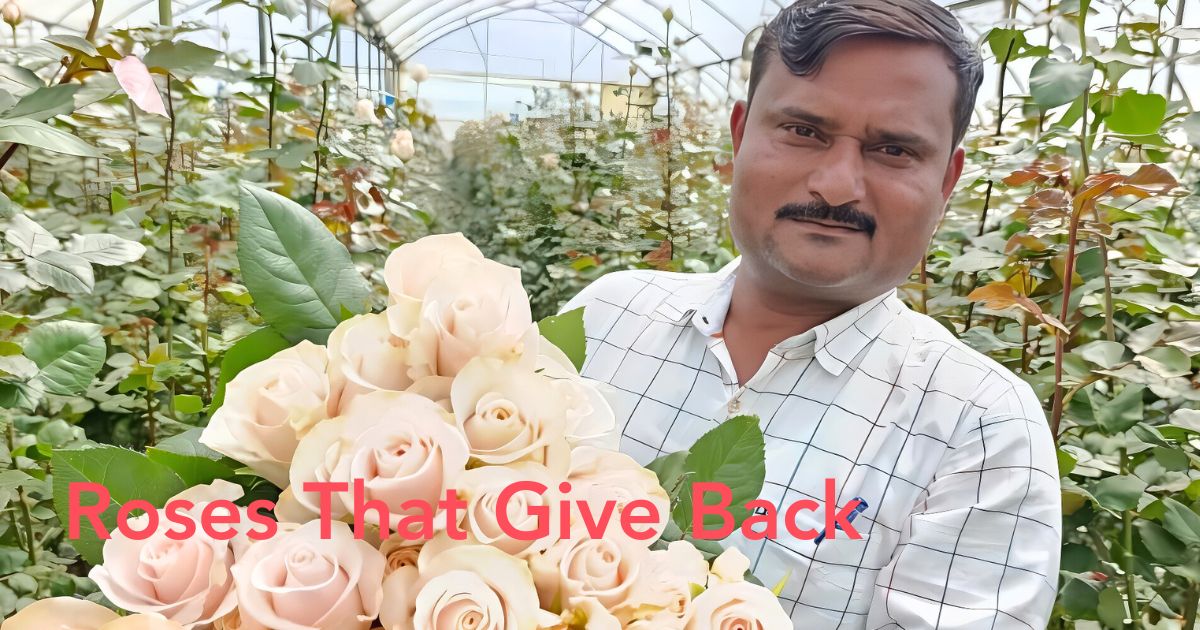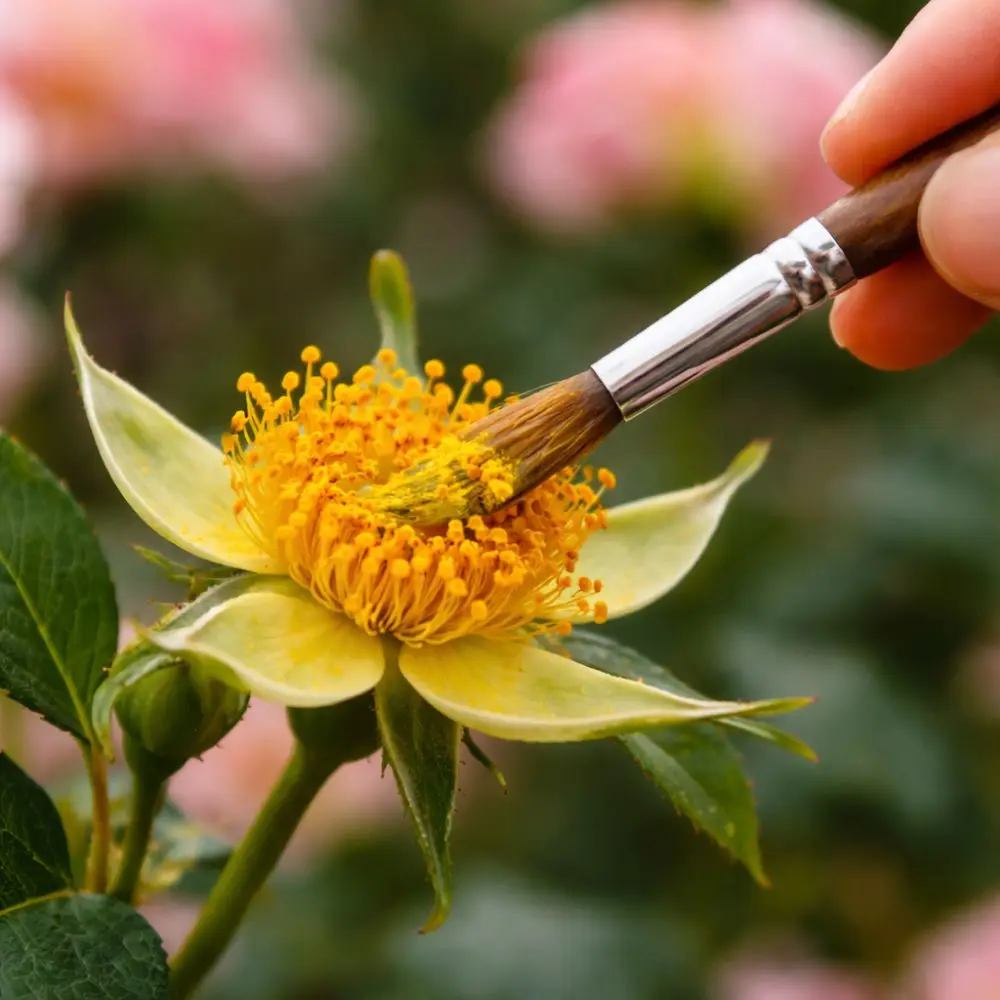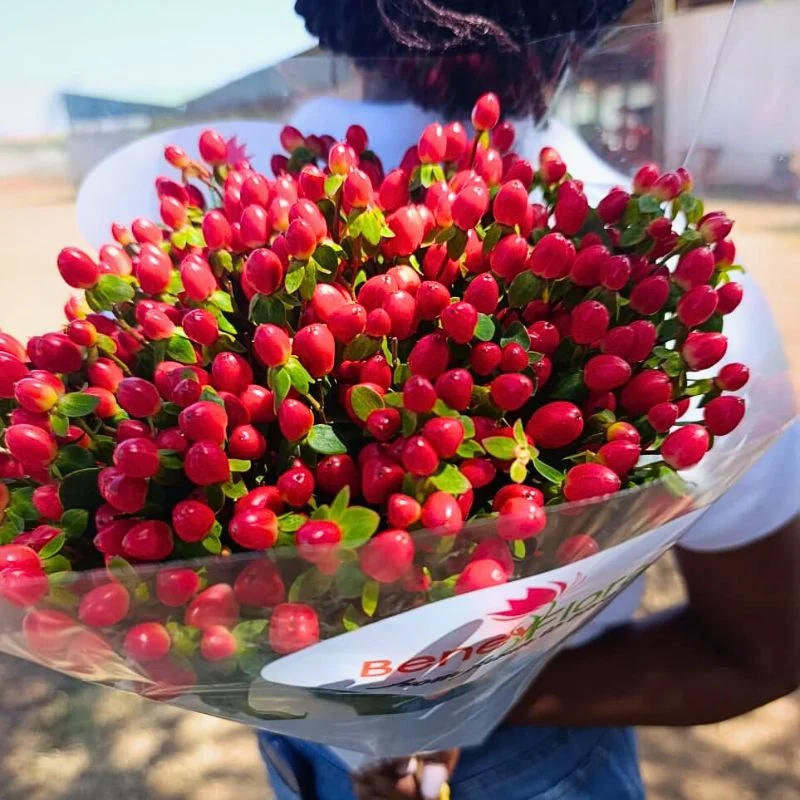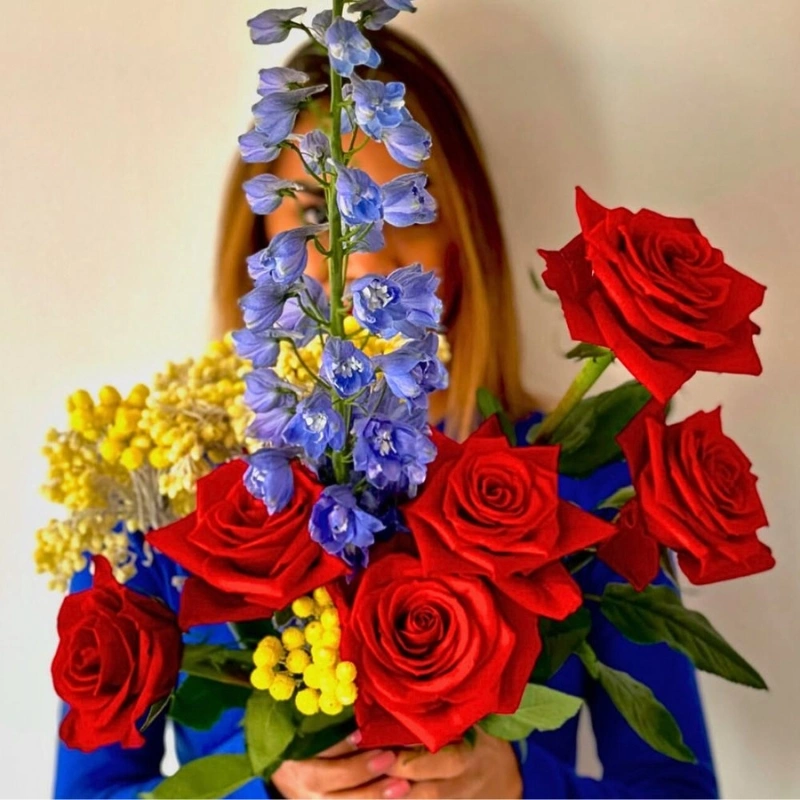Some roses start as varieties; others become families. Rose PomaRosa®, bred by De Ruiter Innovations, is one such example — a variety that has quietly shaped floral design and inspired new generations of roses now grown across continents.
Originally introduced in Latin America, Rose PomaRosa® remains a favorite for growers, florists, and event planners who rely on consistency. Its soft pink tone fits effortlessly into weddings, bouquets, and design work that demands calm color harmony. For farms, it’s a dependable performer — highly productive, uniform in growth, and adaptable to different altitudes and climates.
But perhaps the most remarkable part of Rose PomaRosa®'s story is what came after it. Over the years, it has given rise to two promising mutations — Rose Be Sweet and Rose Anne Laure® — both carrying forward its character in distinct ways. Together, they represent not just a family of roses, but a story of innovation shared by breeders and growers committed to quality and community impact.
Rose PomaRosa: A Steady Force From De Ruiter Innovations
Bred by De Ruiter, one of the most established names in rose breeding, Rose PomaRosa® was developed with a focus on reliability and color appeal. Its gentle pink shade continues to define it as a leading choice for weddings and events, especially across markets in Latin America where it first gained popularity.
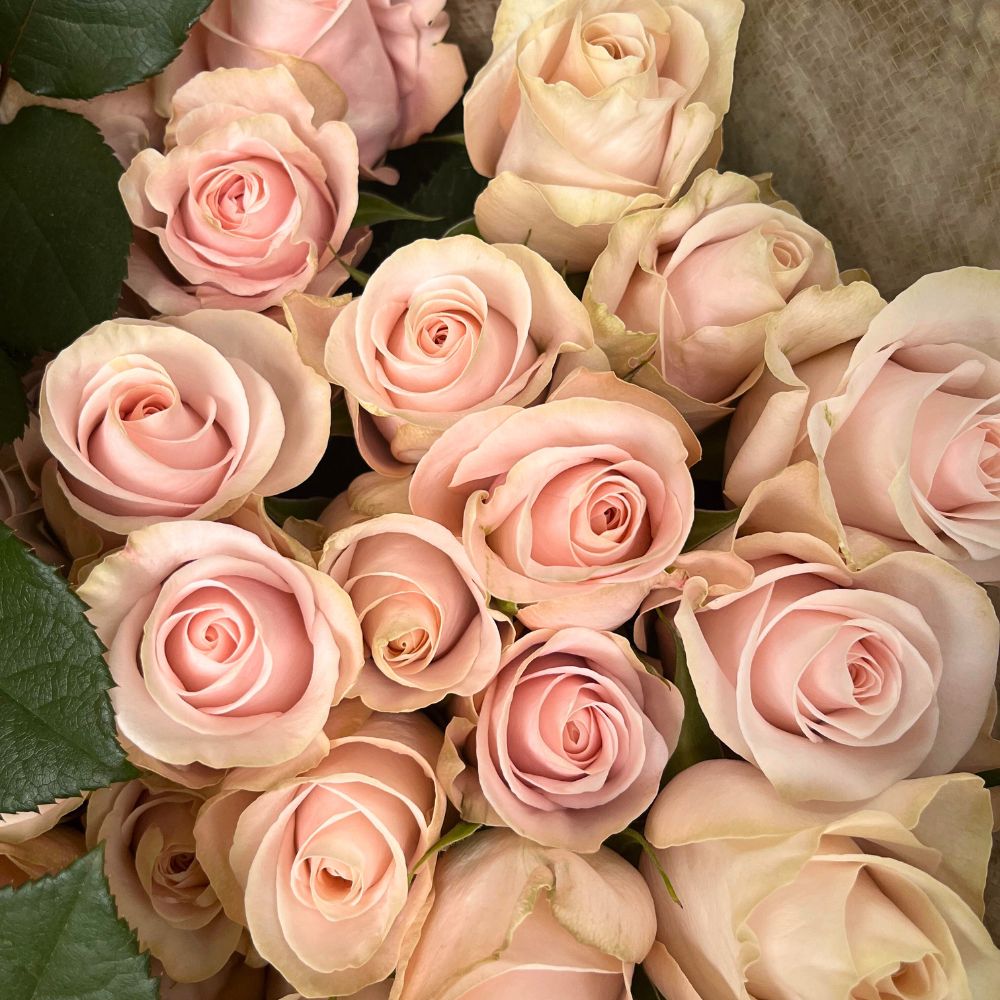
De Ruiter’s approach has always been to create roses that are both beautiful and practical — a balance of form and function. With Rose PomaRosa®, that vision is clear: sturdy stems, strong heads, and a growth cycle that rewards growers with steady production. Its versatility allows it to move easily between markets — from wholesalers and florists to high-end event planners seeking subtle, modern tones.
Rose Be Sweet: Strength and Scale at Black Tulip Laurel Investment Farm
The first recognized mutation of Rose PomaRosa® is Rose Be Sweet, a rose that has become a strong commercial performer for Black Tulip Laurel Investment Farm in Kenya. While maintaining the same pink family tone as its parent, Rose Be Sweet distinguishes itself through vigor and yield.
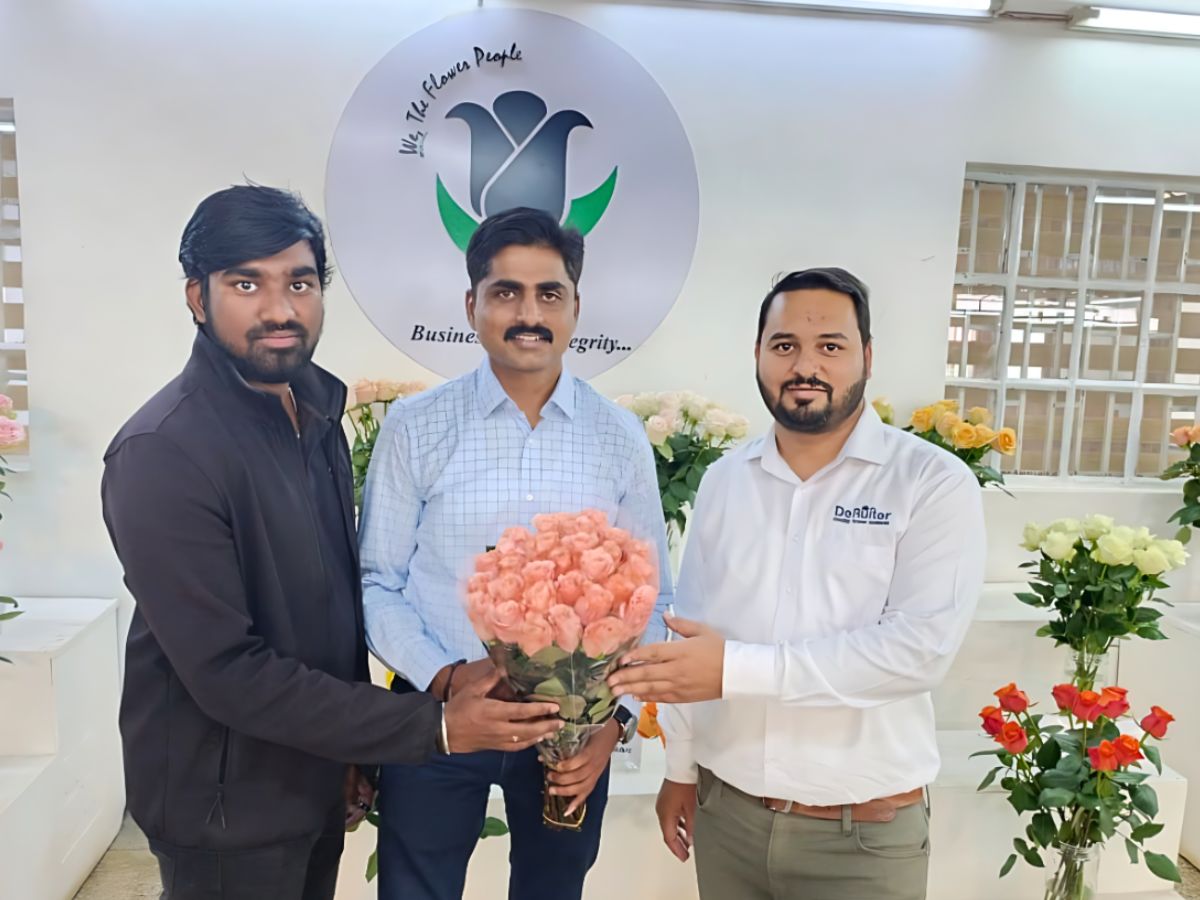
At Black Tulip Laurel Investment Farm, Rose Be Sweet grows to stem lengths of 60–70 cm and completes a growth cycle of about 65 days. This short cycle allows for high productivity without compromising stem quality. The farm exports Rose Be Sweet to markets in the Middle East, Russia, Australia, and parts of Europe, where it has earned a consistent market position.
Cultivation Without Bending
Located at a high altitude, the farm grows its roses in an environment of cold nights and variable daylight. To adapt, they’ve adopted a unique growing approach that avoids bending — a common practice elsewhere but one that, in their conditions, could invite diseases such as agrobacteria, downy mildew, or botrytis. This method ensures a healthier crop and extends the longevity of production cycles.
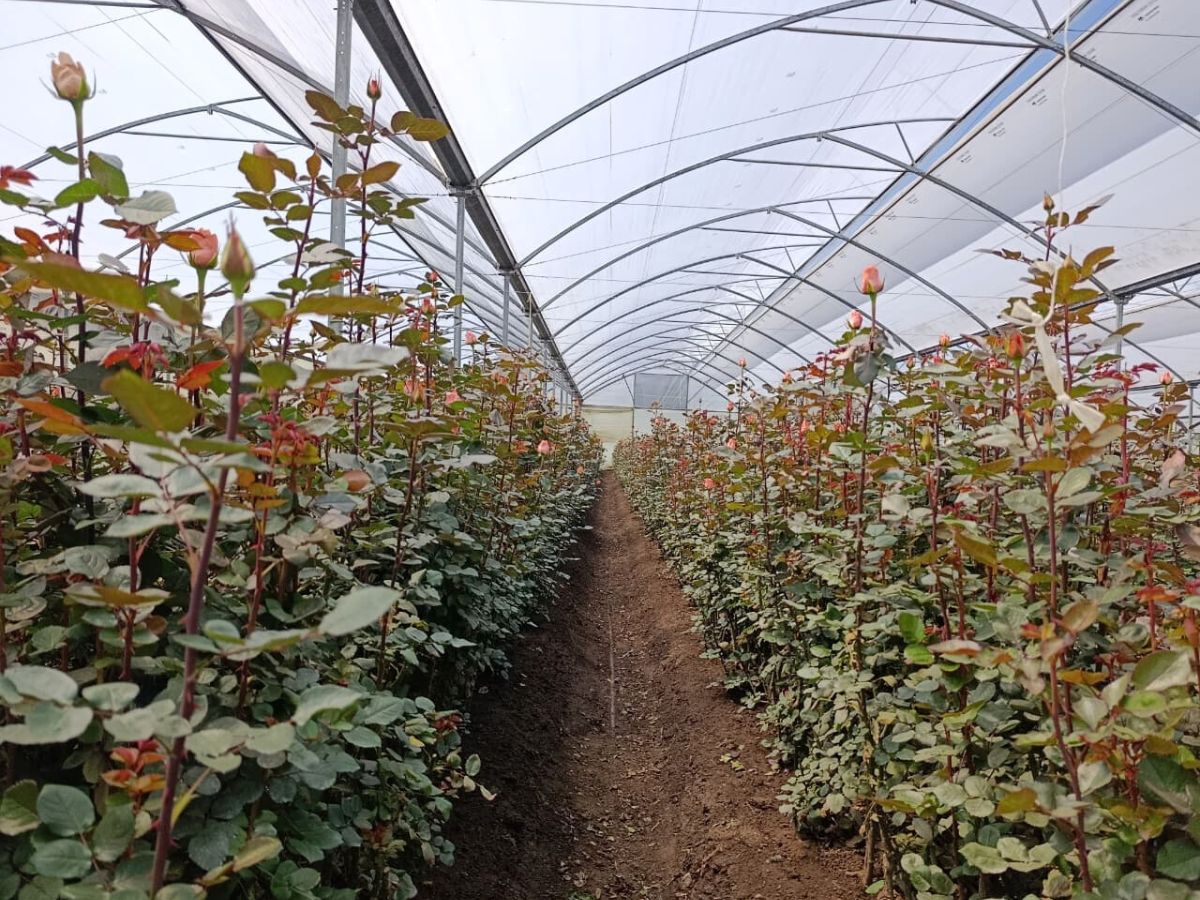
Their agronomy team also places strong emphasis on soil rejuvenation. Through the use of compost manure, biological inputs, and organic enrichment, they maintain a living soil system capable of continuous productivity. Each cycle is supported by both traditional and biological measures to manage pests and diseases effectively, resulting in steady quality throughout the year.
Community and Fairtrade Commitment
Black Tulip Laurel Investment Farm took shape in 2010, when the Black Tulip Group took over what was formerly New Holland Farm. Since then, the farm has expanded significantly in production and integrated a strong Fairtrade program into its operations.
Through this commitment, they have developed projects that reach beyond their gates — including a daycare center, school infrastructure, water supply for local communities, medical support, and educational bursaries that extend to university level. Their football club, student sponsorships, and social engagement reflect a philosophy that flower growing is not only a business but a way to create shared value for people and place.
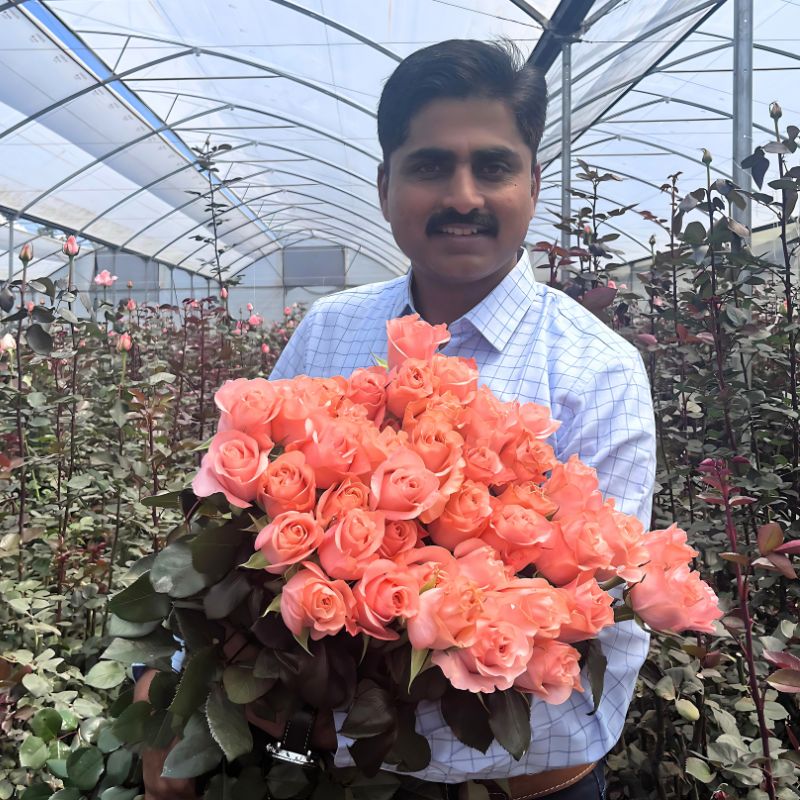
Rose Be Sweet, therefore, is not just a successful mutation — it’s a reflection of how responsible production practices can shape both crops and communities.
Rose Anne Laure: The White Mutation
The second mutation from Rose PomaRosa® is Rose Anne Laure®, a pure white rose. This variety offers a clean color contrast to Rose PomaRosa®’s soft pink and complements its sister mutation, Rose Be Sweet, within the same genetic family.
Subati Flowers, based in Naivasha, Kenya, is the first grower to commercialize Rose Anne Laure®. Known for their wide portfolio and technical precision, Subati has quickly established Rose Anne Laure® as a dependable white rose for premium markets. The farm also continues to grow Rose PomaRosa®, ensuring both mother and mutation thrive side by side.
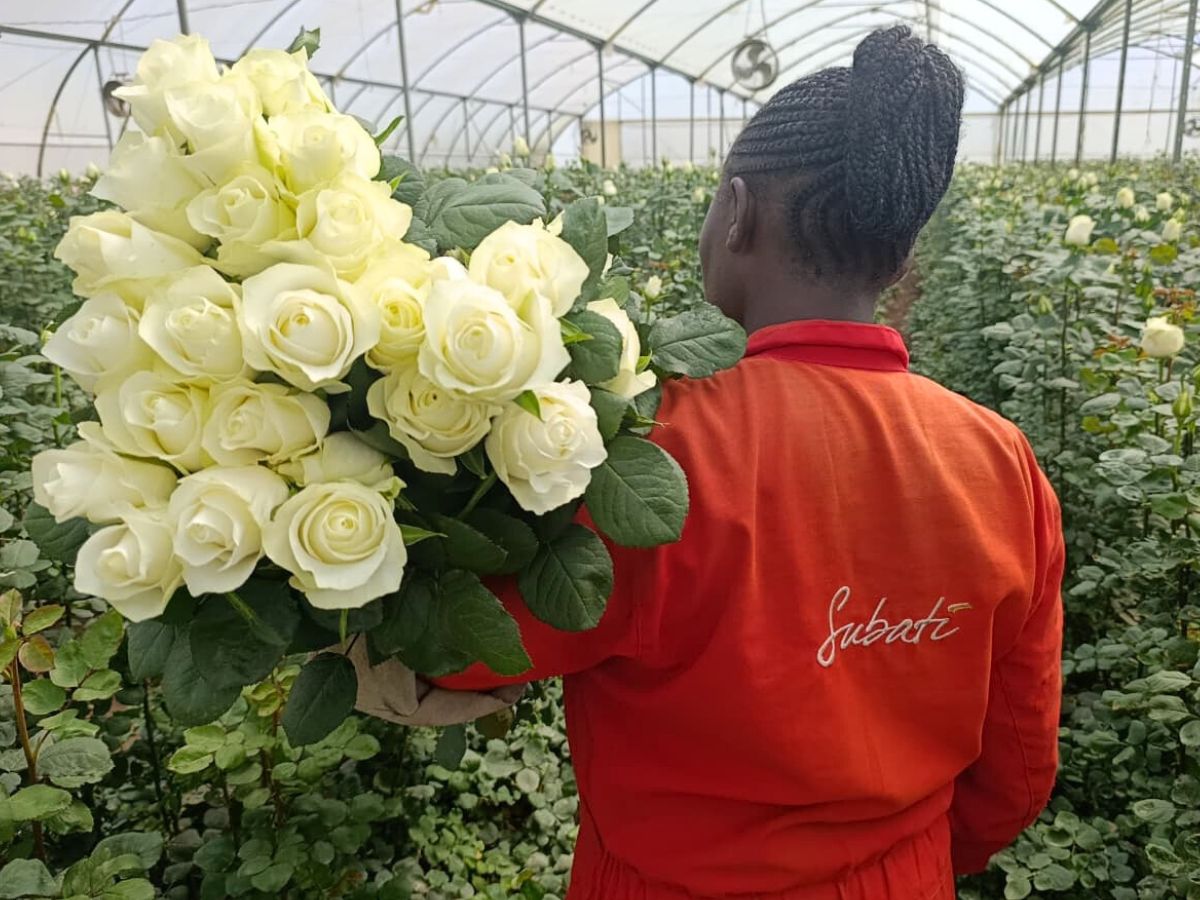
Subati’s exports reach the Middle East, Russia, and Europe, where Rose Anne Laure® has gained attention from wedding designers for its form and purity — especially in arrangements requiring tonal balance between soft pinks and whites.
Subati Flowers: Beyond Cultivation
Like Black Tulip Laurel Investment Farm, Subati Flowers is a Fairtrade-certified farm, a membership that defines much of its social and environmental agenda. Their projects include school construction, feeding programs, water provision, and medical outreach within the local community.
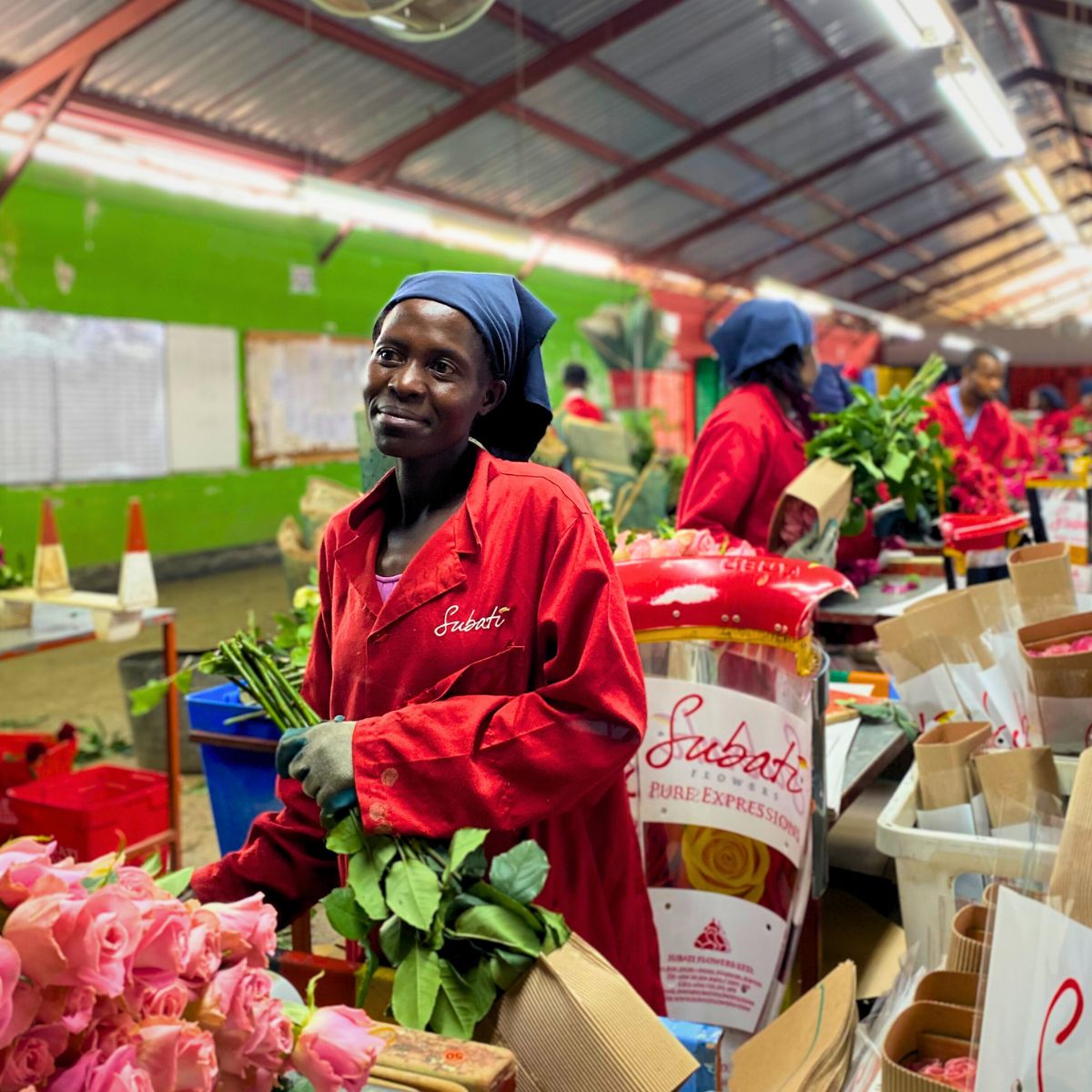
With over 100 rose varieties, Subati is recognized for both diversity and quality. Its particular strength lies in spray rose production, an area where it continues to lead through careful selection and consistent supply.
The farm’s approach reflects the growing importance of sustainability and social investment in floriculture. For Subati, growing Rose Anne Laure® is part of a larger story — one that connects breeding progress to responsible business and long-term community benefit.
A Breeding Line That Continues to Grow
Together, Rose PomaRosa®, Rose Be Sweet, and Rose Anne Laure® illustrate how a single variety can evolve into a full line through observation, mutation, and adaptation. For De Ruiter, it’s a testament to a breeding philosophy built on performance and resilience. For Black Tulip Laurel Investment Farm and Subati Flowers, it’s a chance to express that potential through responsible growing and global reach.
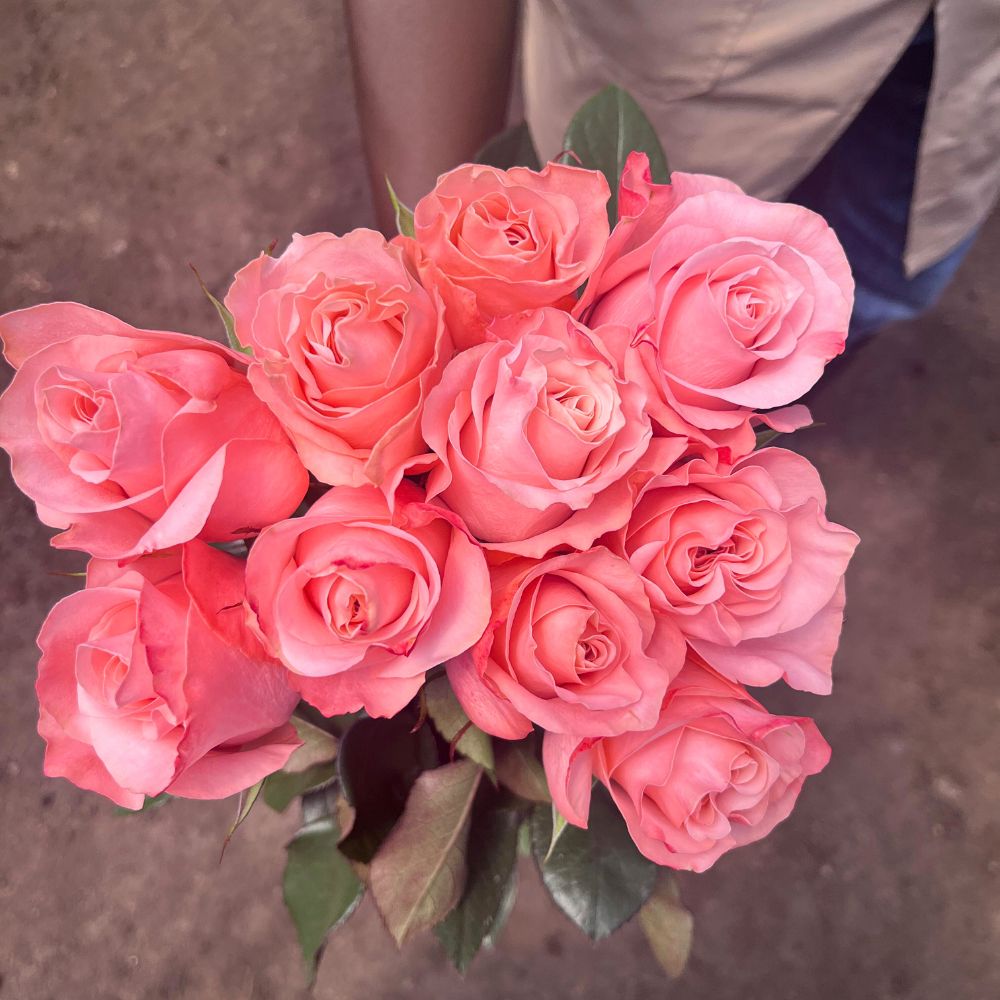
This family of roses also demonstrates a shift in modern floriculture: success today is not measured only by color or productivity but also by how each stem connects to a wider ecosystem of people, soil, and sustainability.
From Ecuador to Kenya, these farms and breeders are part of a shared story — one where genetic innovation, ethical growing, and design sensibility intersect. Every stem of Rose PomaRosa® or its mutations carries that narrative forward, showing how collaboration between breeder and grower can create not just commercial results, but a lasting contribution to the floral world.
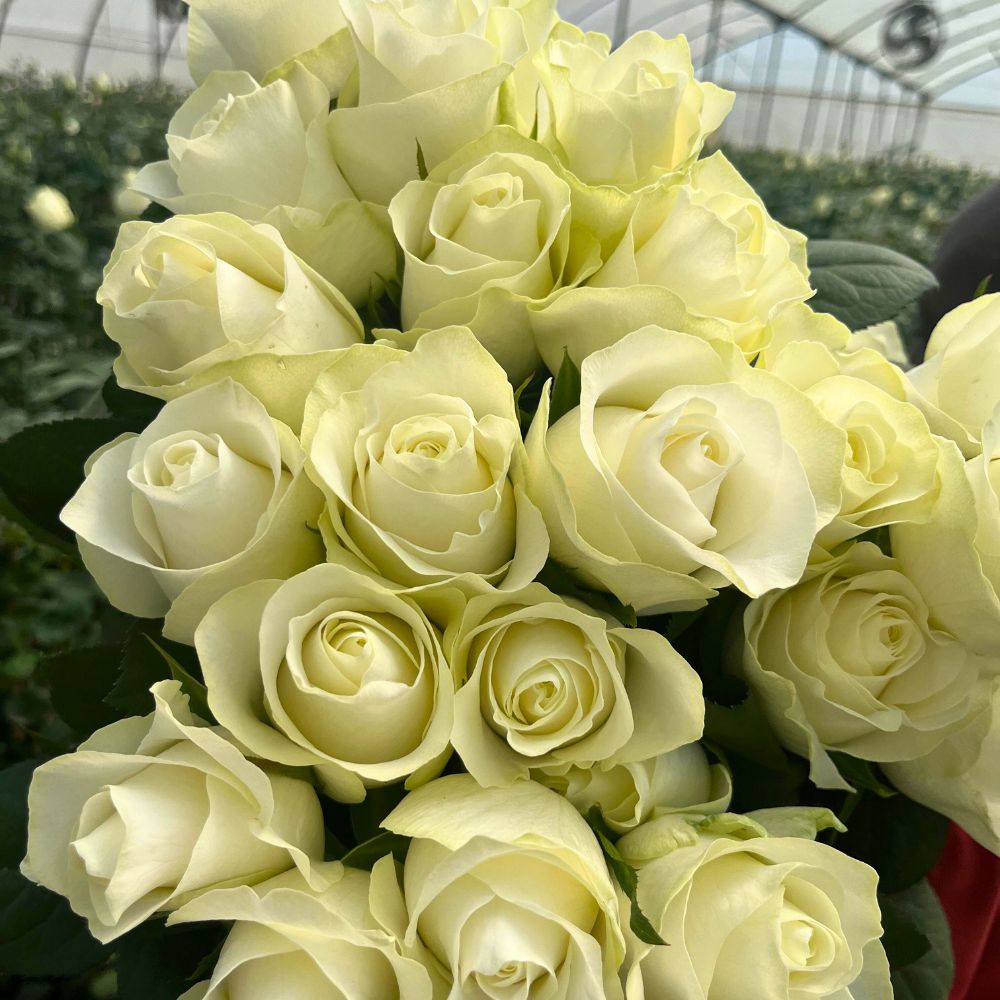
The Rose PomaRosa® family represents an ongoing journey — a dialogue between tradition and renewal. Through the hands of growers and the vision of breeders, Rose PomaRosa®, Rose Be Sweet, and Rose Anne Laure® continue to shape the modern floral market. Their shared lineage speaks to what happens when science, care, and community meet in one stem: flowers that perform in the field, inspire in design, and give back beyond the farm.

